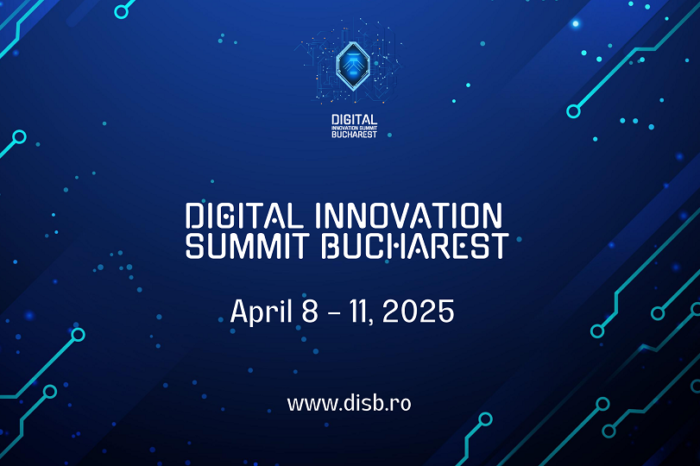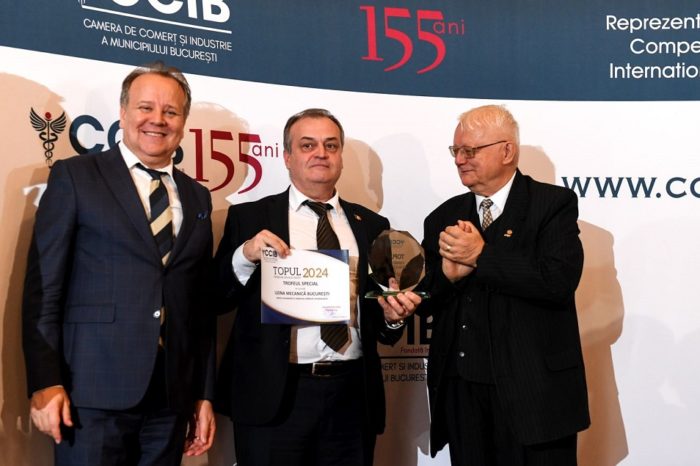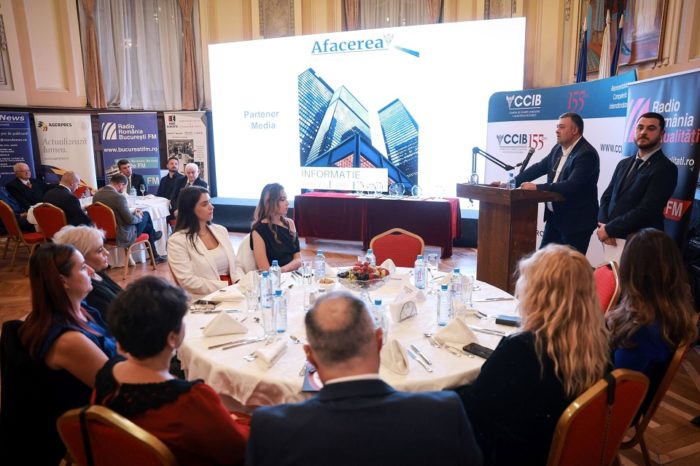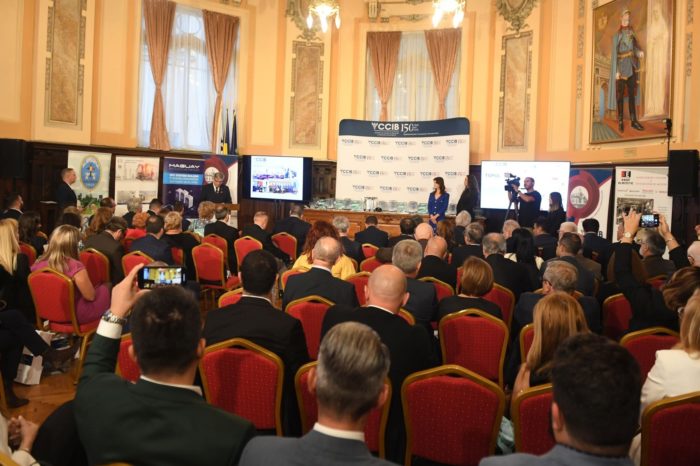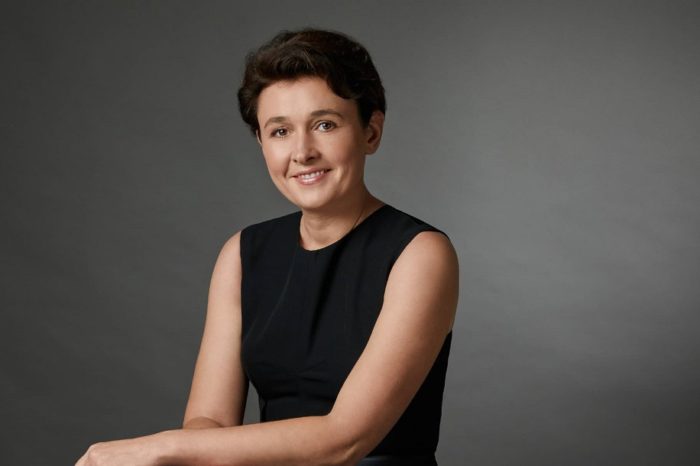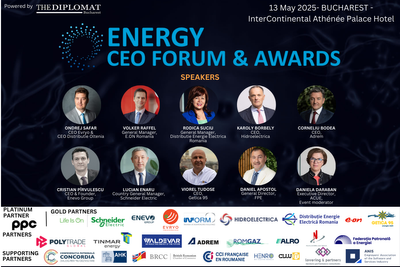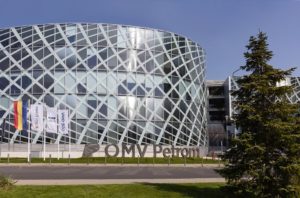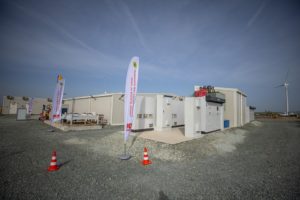FOCUS BUCHAREST conference, CCIB branded event, in its fifth edition
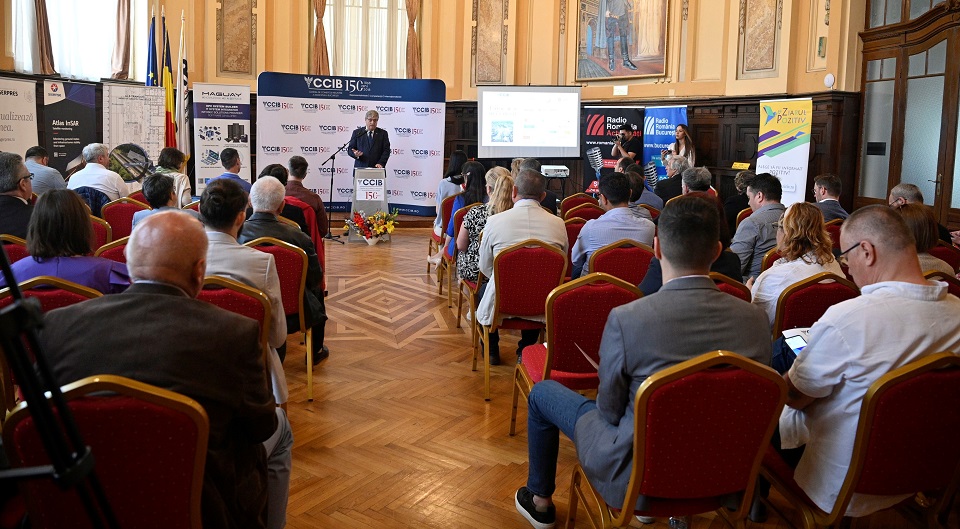
Bucharest Chamber of Commerce and Industry (CCIB) organized, in the Carol I Hall of its historic headquarters, the fifth edition of the “FOCUS BUCHAREST” conference, the theme of the event being “infrastructure and sustainable urban development”.
The conference brought together representatives of the Capital’s business community, officials from the local and central administration, top specialists from various fields, representatives of civil society, with the aim of openly discussing the Capital’s problems and identifying viable and constructive solutions whose application to lead to the healthy development of Bucharest.
“Thanks to its clear competitive advantages, the Capital can also attract significant investments in the next period, but teamwork is needed: public environment – private environment. Although important progress has been made in recent years in terms of transport infrastructure, de-bureaucratization and digitization of the administration, the business community, taxpayers, in general, are still waiting for effective measures to contribute to the improvement of the business climate and social life capital’s economy”, declared the CCIB president, Iuliu Stocklosa, at the opening.
On this occasion, the participants had the opportunity to meet in a structured setting with: Clotilde Armand, mayor of sector 1, Robert Negoiță, mayor of sector 3, Rareș Hopincă, public administrator, City Hall of Sector 5, Cecilia Martin, commissioner, National Guard of Environment, Dan Nicula, general director of the Bucharest Ilfov Regional Development Agency (ADRBI), Ștefan Ioniță, executive director of CNAIR – CESTRIN, as well as with Costin Băcilă, Business Development Manager, Maguay, and Ștefan Popescu, director of public affairs in within Engie Romania.
The mayor of sector 1, Clotilde Armand, emphasized in her intervention the importance of developing a green city. In this context, he presented in detail the project he will implement in sector 1, a project aimed at the placement of photovoltaic panels and heat pumps at the level of 1000 blocks in the sector. “It’s a robust, simple project that doesn’t require any permits. In addition, we use the existing infrastructure (pipes), without the need for interventions in housing. 90% of the investment is borne by the town hall, the rest by the tenant associations. We already have 200 associations that voted for this project”, explained the mayor.
Referring to the priorities of sector 3, Robert Negoiță pointed out the importance of solving road infrastructure problems, including in terms of decongesting the exit routes from Bucharest by building passages, such as the one at the exit to the A2. According to him, an adequate road infrastructure contributes significantly to the improvement of air quality in the Capital. Regarding urban regeneration projects, the mayor of sector 3 spoke about Hala Laminorul, a heritage building, recently consolidated and modernized, within which a true social hub will operate. In this context, Robert Negoiță launched an invitation to the business community to consider the development of projects in this space.
For his part, Rareș Hopincă spoke at length about the projects that the City Hall of sector 5 intends to develop in the area of mobility, starting from those aimed at solving some urban design deficiencies, to those of road mobility and up to the large projects, carried out in association with other institutions, such as the one regarding the construction of the metro line connecting Unirii Square with the railway belt of Bragadiru city (in partnership with the Ministry of Transport and the Ilfov County Council).
The extensive presentation of the Bucharest Ilfov Regional Program 2021-2027, made by the general director of ADRBI, Dan Nicula, was very well received. He presented the priority axes of the Program and the calendar of project call launches, pointing out that one third of the budget allocation of the program is intended for the private environment for investment, innovation and digitization, with the rest of the money to finance projects aimed at: digitization of local public services , increasing energy efficiency and consolidation, creating green spaces and green mobility initiatives, accessibility to European transport networks, road safety and, last but not least, educational infrastructure.
The event was an excellent opportunity for participants to present their problems, to identify solutions to them, to interact with the speakers present at the conference, but also to initiate new business collaborations.


